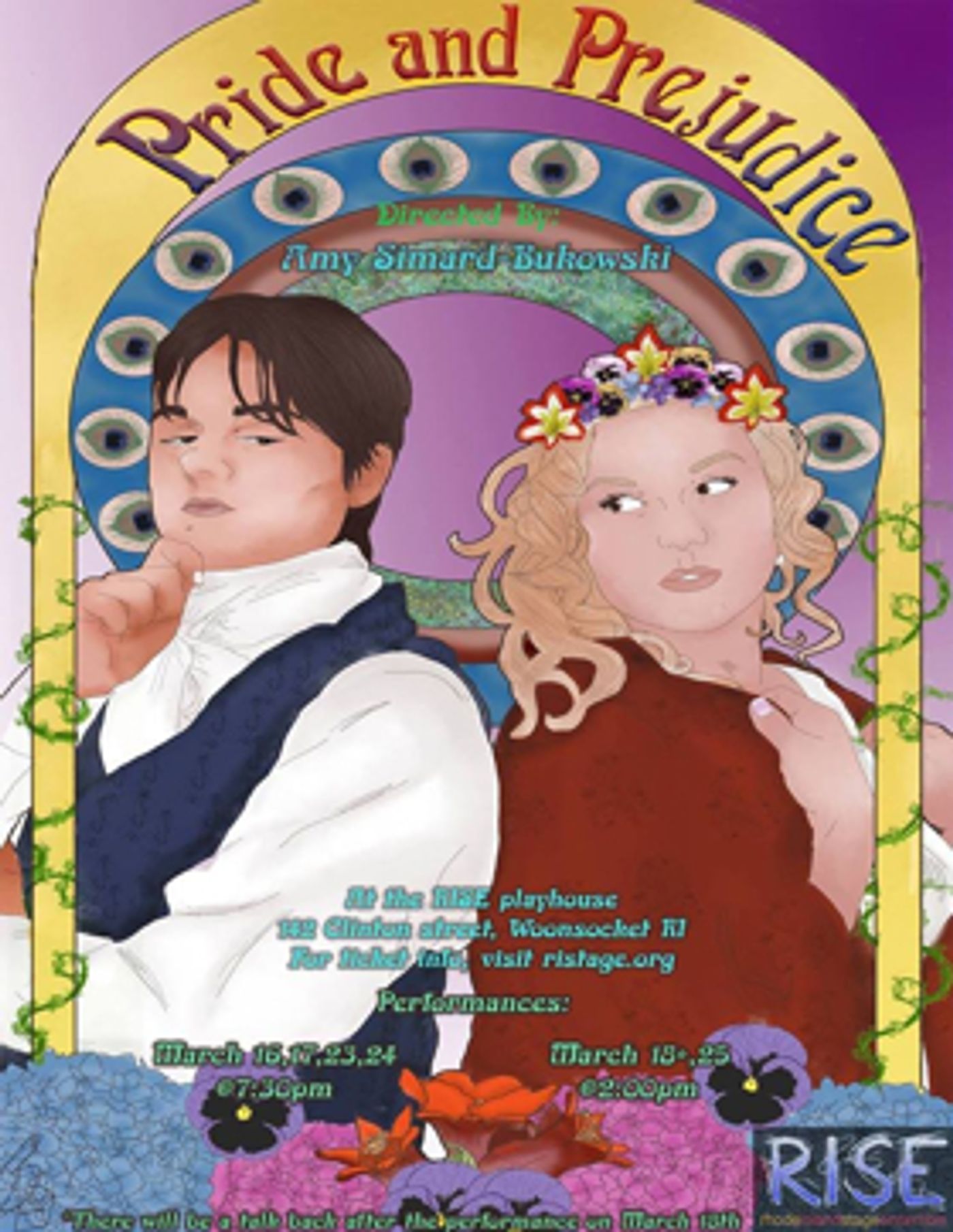Review: Rhode Island Stage Ensemble's PRIDE AND PREJUDICE Hampered by Uneven Adaptation

Pride and Prejudice is one of Jane Austen's best-known and best-loved works. Countless adaptations and imitations - from period-correct costume dramas and Bollywood extravaganzas to modern-day vlog postings - have retold this story for audiences worldwide, and more than 200 years after its publication, the original novel still sells tens of thousands of copies annually.
The "will they/won't they" relationship between Elizabeth Bennet and Fitzwilliam Darcy has fascinated readers and scholars for over two centuries. Austen was a master observer of the human condition, and her writing reaches far beyond a simple romantic plot centered in the realm of domesticity. She employs each scene and character in Pride and Prejudice to explore themes of class consciousness and social standing, gender roles, financial realities, honor and moral integrity, and the necessity of love and equality for true matrimonial harmony.
With these complex issues to consider and a rather large number of characters at play, staging Pride and Prejudice for live theater is an ambitious undertaking. Any production will rise and fall on the strength of the adaptation selected for presentation and on the talents of its acting troupe. The cast members at Woonsocket's Rhode Island Stage Ensemble (RISE) certainly give the performance their best efforts, but the choppy adaptation of Pride and Prejudice now on stage at the RISE Playhouse disservices both the company and its source material.
The RISE program doesn't cite an adapter for this particular script - a straightforward period-style piece - only noting that the play is "From the novel by Jane Austen." While Pride and Prejudice's major plot points and characters are present, the narrative is so far abridged that a prior knowledge of the story is almost necessary to follow along. Key character development - particularly in interactions between Lizzy and Darcy - is sacrificed as whole scenes and conversations are compressed down to a few spoken lines, and too often the script tumbles into "show, don't tell" territory. Even before the performance formally begins, an abruptly staged vignette spoon feeds exposition to the audience and drives home Mrs. Bennet's character as a comic busybody. Indeed, Mrs. Bennet - though played delightfully by Mary Case - comes to spend more time center stage than do Lizzy and Darcy.
What plot points aren't compressed or omitted (no visits to Pemberley for Lizzy here; Bingley never hosts the memorable ball at Netherfield) are confusingly rearranged in the timeline. In one crucial example, Darcy reveals Wickham's true character to Lizzy nearly at the conclusion of the play, which undercuts his early confidence in her and downplays her own horror as the circumstances unfold. But then, Wickham has a bare few lines in the first act before vanishing from sight until the finale, so even more, the full impact of his and Lydia's transgression ultimately fizzles. Generally such changes would be concessions to run time - Pride and Prejudice is, admittedly, a longer work - but for every cut made in this retelling, new lines of dialogue or original characters are shoehorned in to disjointedly bridge the gaps, so the performance still clocks in at nearly three hours.
All of which is unfortunate, because RISE's company clearly put good effort into this staging and gathered an enthusiastic ensemble to bring the story to life. The scenes that stay closer to Austen's writing, such as Mr. Collins' hilarious marriage proposal, are this production's high points and give the cast their spotlight moments. Heather Buckley shows sparkle and spirit as Lizzy, Galen Auer well portrays Darcy's aloof manner and keen intelligence, David Brunell gives Mr. Bennet a good dose of dry wit, Jason Burns bumbles admirably as Mr. Collins, and, as mentioned earlier, Mary Case utterly steals the show as Mrs. Bennet.
Pride and Prejudice is an ambitious effort for RISE this spring, but one that doesn't live up to its full potential.
---
The Rhode Island Stage Ensemble presents Pride and Prejudice at the RISE Playhouse through March 25, 2018. Friday and Saturday performances start at 7:30 p.m. and Sunday matinees begin at 2:00 p.m. A talk-back session follows the March 18 performance. General admission tickets cost $20 (child/student/senior/military discounts are available) and may be purchased online at www.ristage.org or at the door. The RISE Playhouse is located at 142 Clinton Street, Woonsocket, RI 02985.
Image courtesy Rhode Island Stage Ensemble.
Poster design by Brittney Simard.
Reader Reviews
Videos

